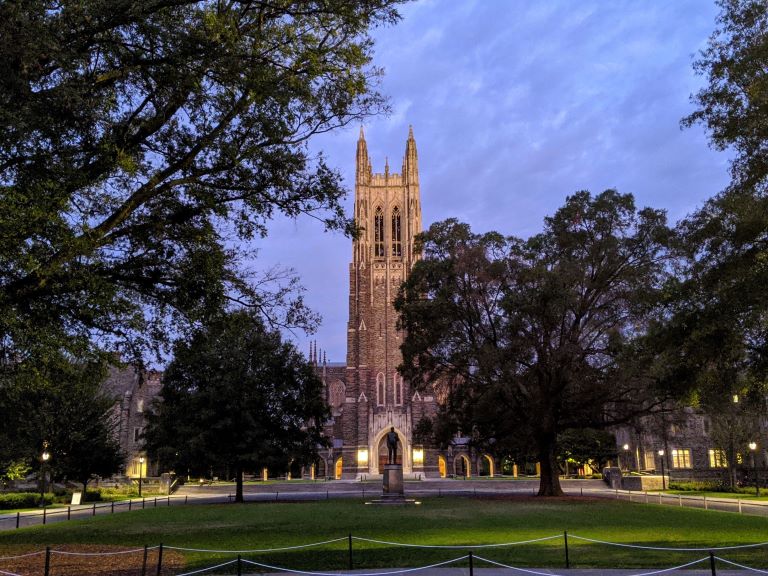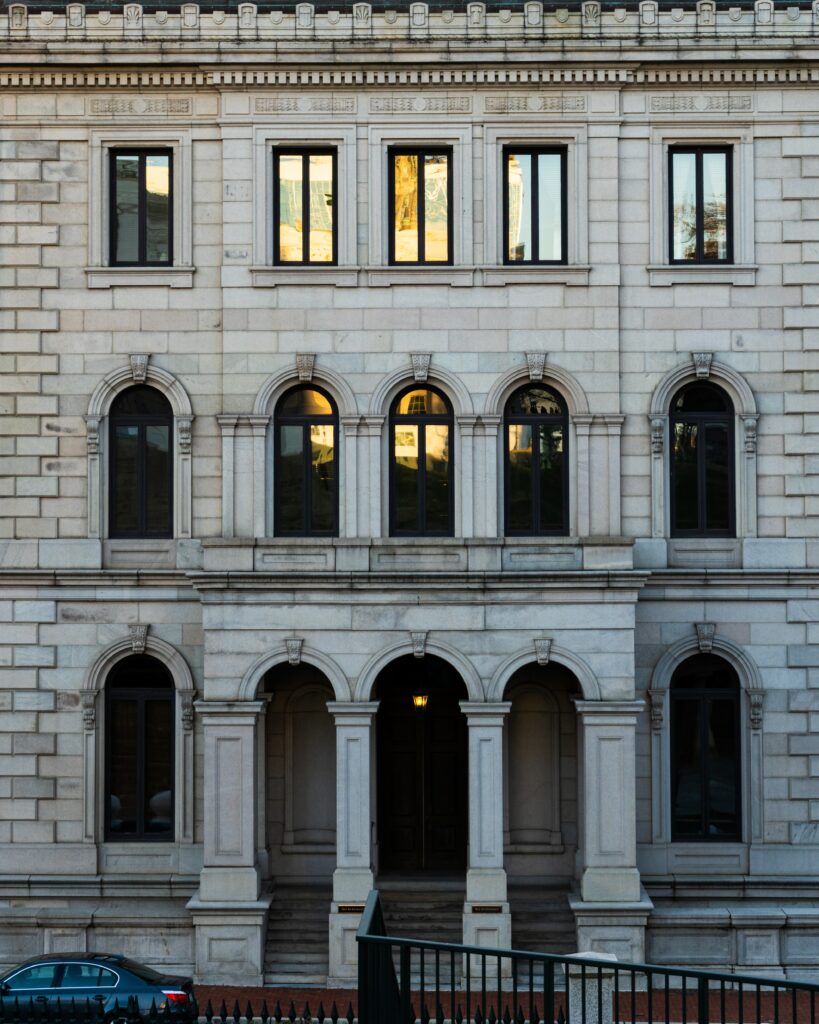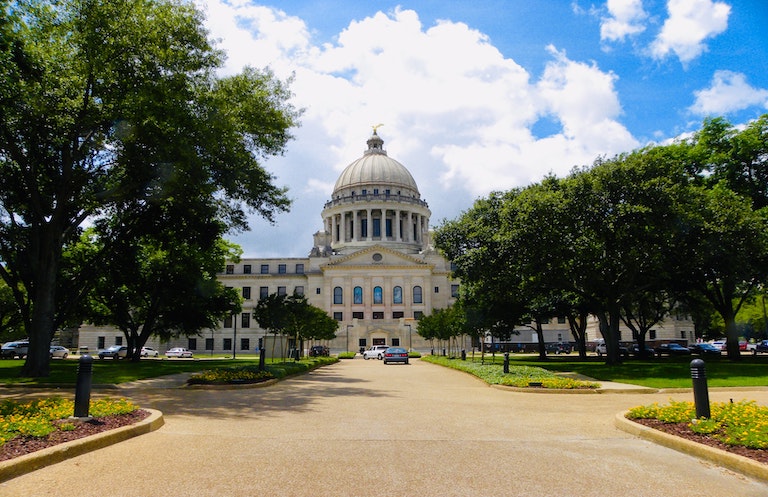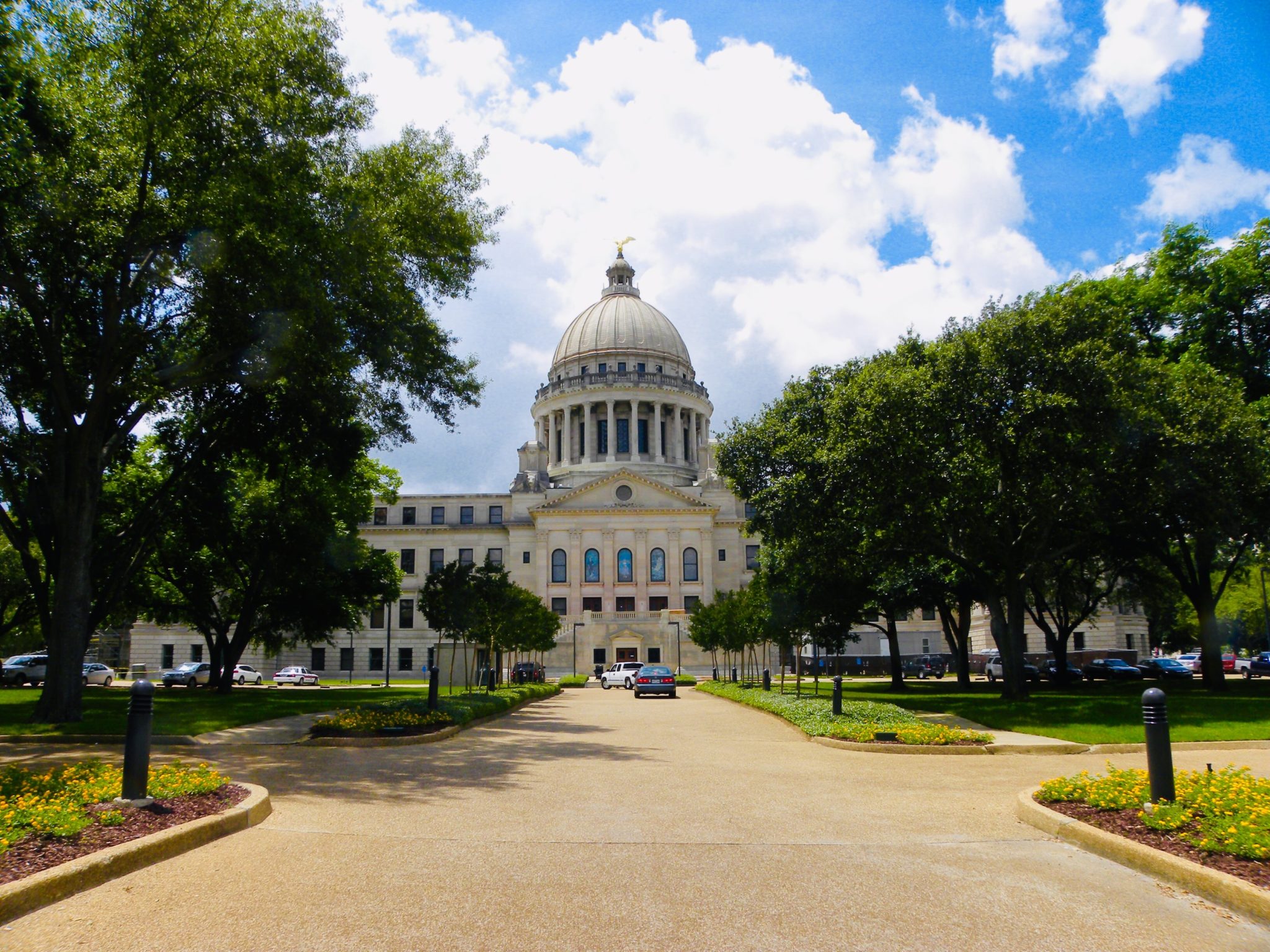Category: Elections
2023 Election Highlights
Lily Smith

With a national election occurring next year, there is increased media attention on local candidates’ economic, social and foreign policy platforms. This fall, the Southeast held four key elections in Kentucky, Louisiana, Mississippi and Virginia, which highlighted the tension between federally funded clean energy initiatives and traditional gas, oil and coal industries. A recurrent theme throughout the 2023 gubernatorial and public service commission campaigns was emphasis on an “all-of-the-above” energy generation and supply strategy. The stance was supported by the winning gubernatorial candidates from Southeast states with large coal, oil and natural gas industries.
Kentucky
Incumbent Democratic Governor Andy Beshear sought and won reelection against opponent Republican Attorney General Daniel Cameron on November 7. Lieutenant Governor Jacqueline Coleman was also reelected. One of the most popular governors in the United States, Beshear favors an “all-of-the-above” strategy for generating and supplying energy to Kentucky residents. In a state with a historically prominent coal industry, Governor Beshear’s policy supports integrating a range of renewables and more reliance on natural gas while slowing down the transition from coal. The hesitancy to move away from coal was apparent in a bill passed in the state Senate and House in March 2023, which requires utilities to prove to the Kentucky Public Service Commission that the retirement of a coal plant would not negatively impact customer rates or the grid’s reliability. Despite public comments opposing the bill from Kentucky Utilities, Louisville Gas and Electric, and Duke Energy Kentucky, the bill became law without a signature or veto from the governor.
Energy and climate highlights of Beshear’s career include KYE3: Designs for a Resilient Economy, published in 2021, which ties together the economy, energy and the environment as priorities in ensuring a resilient economy for the state. Additionally, under Beshear’s leadership, the state has seen significant clean manufacturing investments, including a $5.8 billion deal in 2021 with Ford Motor Co. and SK Innovation to create 5,000 jobs at two new electric battery plants, a $2 billion deal in 2022 with Envision AESC to create 2,000 jobs at a battery plant, and further announcements from Rivian and Hitachi.
In 2023, Governor Beshear was one of four governors who chose not to accept funding from the EPA-administered and IRA-funded Climate Pollution Reduction Grants, which gives money to the states to develop plans to reduce greenhouse gas emissions. Beshear’s perspective is that major cities, which are also eligible, are better equipped to apply directly for these funds.
Louisiana
With Democratic Governor John Bel Edwards’ term set to expire in 2024, current Republican Attorney General Jeff Landry faced former Secretary of the Louisiana Department of Transportation and Development, Democrat Shawn Wilson. On October 14, Louisiana voters chose Jeff Landry to be the next governor of Louisiana.
Landry has described climate change as a hoax and is a strong supporter of the oil and gas industry. As attorney general, Landry sued FEMA over increased flood insurance rates in Louisiana and sued the Biden administration over a moratorium to halt the sale of oil and gas leases.
The governor will continue to be supported by Republican Lieutenant Governor Billy Nungesser, who was elected to serve a third term. Nungesser has focused his efforts in office on bringing tourism back to Louisiana coastal communities following the Deepwater Horizon oil spill in 2010.
Mississippi
Mississippi voters reelected Republican incumbent Governor Tate Reeves over Democratic candidate and former public service commissioner Brandon Presley. As a commissioner, Presley supported rebates for solar panels, which would expand net metering for low-income customers. Reeves opposed the proposal, calling it a “bad deal.”
In March 2021, Governor Reeves signed the All Fuels Act of 2021, a preemption bill that promotes an “all of the above” strategy to supply the state’s energy. The act prevents any political subdivision from prohibiting a type or energy source from being provided to a customer. The All Fuels Act of 2021 supports the state’s oil and gas industries and is speculated to prevent cities’ transitions to lower carbon energy sources. In March 2023, Governor Reeves signed HB 401, which amends provisions to the Mississippi Motor Vehicle Commission Law. The amendments require that all electric vehicle manufacturers in the state sell their vehicles through dealerships rather than directly to customers. HB 401 received a significant number of comments from electric vehicle manufacturers and advocates, including concerns of free market infringement, increased costs, loss of additional electric manufacturing investments in the state, and how to ensure quality of service and maintenance of electric vehicles.
Governor Reeves will continue to be supported by incumbent Republican Lieutenant Governor Delbert Hosemann, who was reelected this fall over Republican State Senator Chris McDaniel.
In addition to the governor and lieutenant governor races, all three Mississippi Public Service Commission seats were up for election. Republican State Representative Chris Brown ran unopposed for the Northern District Seat currently held by former governor hopeful Brandon Presley. Elected on November 7, Brown has adopted an “all of the above” approach to energy, wants to ensure low utility rates, and advocates for consumer choice. Republican Nelson Carr won the election against incumbent commissioner Dane Maxwell in the Southern District. Carr brings electrical and contracting expertise to the commission. Lastly, incumbent Republican Commissioner Brent Bailey, who supported net metering, energy efficiency, renewable energy, and integrated resource planning, faced Democrat State Representative De’Keither Stamps for the Central District Seat. In 2019, the same candidates shared the ballot, with Bailey winning by a slim majority. This year, the slight majority shifted in Stamps’ favor, who will serve as the Central District’s next public service commissioner. Stamps’ platform includes affordable energy, grid modernization, and increasing access to high-speed internet.
Virginia
In 2020, Virginians voted to establish the Virginia Redistricting Commission to redraw legislative boundaries. Between the commission’s establishment and this year’s election cycle, the General Assembly approved new maps, leading to position turnovers, early retirements, and no incumbents to reelect in the newly created districts.
Previously held by state Republicans, on November 7, the Virginia House of Delegates was flipped by state Democrats with a 51-48 majority. Additionally, Democrats retained control of the State Senate with a 21-19 majority. Republican Governor Glenn Youngkin was elected in 2021 with a commitment to withdraw the state from the Regional Greenhouse Gas Initiative. Senate Democrats used their majority to oppose and stall any legislative moves contrary to previously passed climate policies, including stopping proposals to amend the Virginia Clean Economy Act and attempting to roll back a mandate prohibiting the sale of gas-powered vehicles after 2035.
| State | Legislative Sessions Convene | Legislative Session Adjourns (all dates are estimates) |
| AL | February 6 | May 20 |
| AR | April 10 | May 9 |
| FL | January 9 | March 8 |
| GA | January 8 | March 27 |
| KY | January 2 | April 15 |
| LA | March 11 | June 3 |
| MS | January 2 | May 5 |
| NC | April 24 | July 31 |
| SC | January 9 | May 9 |
| TN | January 9 | April 25 |
| VA | January 10 | March 9 |
2022 Election Highlights
Updated December 21, 2022
The Inflation Reduction Act, passed in August 2022, preceded by the Infrastructure Investment and Jobs Act, which passed at the end of 2021 invest billions of dollars into the United States’ energy infrastructure to aid in the transition to low-carbon energy sources. The distribution and impact of this historic funding opportunity will be influenced by the federal, state and local leaders chosen to represent the Southeast in the 2022 midterm elections.

Gubernatorial Elections
Alabama, Arkansas, Florida, Georgia and Tennessee held elections this year to determine their next governor.
In Alabama, Democratic candidate Yolanda Flowers challenged incumbent Republican candidate Kay Ivey on the ballot. Voters reelected Ivey to serve another term. Governor Ivey recently supported the opening of an EV battery plant in Montgomery, which is aimed to help supply batteries to a Hyundai Plant in Montgomery and Georgia’s Kia Plant.
Arkansas’s gubernatorial election received national attention due to the name recognition of Republican candidate, Sarah Huckabee Sanders. Sanders was White House press secretary under President Donald Trump and her father, Mike Huckabee, was governor of Arkansas from 1996 – 2007. Sarah Huckabee Sanders ran and won against Democrat Chris Jones and Libertarian Ricky Dale Harrington Jr.
Florida’s incumbent candidate for governor, Republican Ron DeSantis, made headlines earlier this year for his veto of a utility supported bill which would prevent net metering. This move garnered support from the solar industry. DeSantis was joined on the ballot this year by former governor of Florida and U.S. Representative Charlie Crist who voted for the Inflation Reduction Act and the Bipartisan Infrastructure Law as a member of Congress. DeSantis was reelected to serve a second term as Governor of Florida.
Democratic candidate Stacey Abrams and Republican incumbent Brian Kemp were both on the ballot for governor of Georgia this year. Brian Kemp was reelected to serve another term. During Governor Kemp’s term, relevant projects to the energy industry included the expansion of the Qcells solar plant, an additional investment of $150 million into solar projects, bringing SK Battery America into the state and employing Georgia veterans, as well as bringing major EV manufacturer Rivian into the state.
In Tennessee, citizens chose between current Republican Governor Bill Lee, Democratic candidate Dr. Jason Martin and eight other independents. Governor Bill Lee was reelected. His campaign’s priorities included quality education, economic development, safety and supporting families. His campaign website does not mention his stance on energy or climate change.
Mayoral Elections in State Capitals
Three elections for mayor occurred in state capitals across the Southeast. Frank Scott Jr., the first Black mayor of Little Rock, Arkansas was reelected to serve another term. In March 2022, Scott set a goal to have 100% of city operations run on renewable energy by 2030. The incumbent mayor of Tallahassee, Florida, John Dailey, won reelection. Mayor Dailey has committed to 100% renewable energy in the city by 2050 by implementing energy efficient measures, use solar energy in city buildings, and investing in electric fleet transition. He has worked to expand solar fields at airports and increased the number of city-owned buildings powered by solar. The mayor of Raleigh, North Carolina, Mary-Ann Baldwin, was reelected to serve a second term. During her first term as mayor, she helped develop a Community Climate Action Plan which includes goals to reduce greenhouse gas emissions 80% by 2050 through a combination of electric vehicle fleet transition, energy efficiency in buildings, and supporting renewable energy in the city.
Senate Elections
Three Senate races in the Southeast will impact future state of climate and energy policy.
Florida citizens reelected incumbent Republican candidate Senator Marco Rubio versus Democratic candidate Val Demings. Rubio voted against the Inflation Reduction Act and the Bipartisan Infrastructure Bill but helped pass major legislation in 2008 which gave states the authority to develop renewable energy portfolio standards.
In Georgia, Republican candidate Herschel Walker ran against the incumbent senator Reverend Raphael Warnock. As senator, Warnock supported the Solar Energy Manufacturing for America Act, expanding access to electric charging infrastructure by securing $20 million in grants for this project funding, brought electric school buses to the state, and helped limit the costs that small businesses and rural families pay for electricity. On December 6, Senator Warnock was reelected in the runoff election.
In North Carolina, voters chose between Democrat Cheri Beasley and former U.S. Representative, Republican Ted Budd. Budd was elected to serve as the next senator from North Carolina. In 2021, Ted Budd proposed an amendment to the partisan coined “Green New Deal” which would defund $100 million in environmental justice grants.
Regulatory Commission Elections and Appointments
This fall, in states where public service commissioners are not appointed by governors or other legislative bodies, the public voted for commissioners to represent their districts. These positions are critically important as it is their responsibility to regulate the price that consumers pay for electricity, oversee processes for utilities such as integrated resource planning and approve utility energy efficiency measures and programs.
In Alabama, Place 1 and Place 2 seats were up for reelection. Incumbents, Jeremy Oden and Chris Beeker both were reelected this fall to serve additional four-year terms after winning majority vote against their running mates. There is still one vacancy to fill on this commission. In Louisiana, two commissioner seats were on the ballot this fall, winning the majority in the primary vote, incumbent Mike Francis was reelected in District 4. In the general election on December 10, Davante Lewis was elected to serve as District 3’s next commissioner, unseating Lambert Boissiere III who previously held the seat for 18 years. Lewis intends to address resiliency, investments in renewable energy and the high fees residents pay for late utility payments.
In Arkansas, Katie Anderson was appointed to fill a vacancy in the commission by Governor Hutchinson. In July, Governor Beshear appointed Mary Pat Regan to Kentucky’s public service commission. On May 2, 2022, North Carolina Governor, Roy Cooper appointed Karen Kemerait to the commission. In Tennessee, Commissioner David Crowell was appointed to the commissioner by Speaker of the House Cameron Sexton and Dr. Clay R. Good was also appointed to the commission by Lieutenant Governor Randy McNally.
There is one vacancy on Virginia’s commission this year, this spot should be filled by the General Assembly. The Tennessee Valley Authority Board of Directors has four vacancies. Typically, this board operates with nine directors, however only five are currently serving while three Biden nominees await approval by the Senate. In South Carolina the General Assembly selects commissioners. This year they will select replacements for both Tom Ervin and Justin T. Williams of Districts 4 and 6 whose terms have expired.
Georgia’s public service commission election gained national attention this year because of a 2020 lawsuit challenging the voting method used to elect commissioners. The lawsuit was filed by the Georgia Conservation Voters, Black Voters Matter and the NAACP claims the state’s voting method violates Section 2 of the Voting Rights Act and dilutes Black votes. The current voting method allows voters from all over the state to elect commissioners for at-large districts rather than selecting a commissioner to represent regional districts. On August 19, the Supreme Court overturned an order from the Circuit Court of Appeals which would have allowed public service commission elections to occur as normal on election day. As of now, elections are paused and commissioners up for reelection will retain their positions as the case continues in 11th U.S. Circuit Court of Appeals.
Legislation
Virginia
- SB290: This bill was passed by the state Senate in February but defeated by the House later that month. It refers to a new requirement that would have required all newly constructed legislative buildings starting in January of 2023 and over 5,000 square feet must have roofs that are compatible with solar panels, cool, or energy efficient.
- HB 73: The state House of Representatives and Senate passed this bill in February which is intended to remove energy efficiency pilot programs as topics of public interest , as well as, removing capacity requirements for renewable energy facilities.
- Executive Order 9: In January, Governor of Virginia signed an executive order which calls to re-evaluate Virginia’s participation in Regional Greenhouse Gas Initiative (RGGI) and engage in the process to end it.
2023 Legislative Session Schedule
| State | Legislative Session Convenes | Legislative Session Adjourns (all dates are estimates) |
| Alabama | January 9 | April 30 |
| Arkansas | January 9 | March 15 |
| Florida | March 7 | May 5 |
| Georgia | January 9 | April 2 |
| Kentucky | January 3 | April 13 |
| Louisiana | April 10 | June 5 |
| Mississippi | January 3 | April 4 |
| North Carolina | January 11 | June 30 |
| South Carolina | January 10 | June 30 |
| Tennessee | January 10 | April 26 |
| Virginia | January 11 | February 15 |
SEEA’s State Utility Profiles provide additional information on utility regulation and energy efficiency planning in the Southeast. Questions? Contact Claudette Ayanaba, policy manager.
2021 Election Highlights
*updated November 15, 2021
Julian Harden
Policymakers shape energy efficiency in many ways. The Biden administration’s prioritization of climate policy has created a lot of buzz around clean energy, electric vehicles, and workforce development. But there are several, less visible parts of the puzzle required to implement these initiatives including regulatory bodies like state energy offices and regulatory commissions, clean energy laws, and elected officials at the state and local level.

Election Results in the Southeast
In the lone gubernatorial election in the Southeast, former Virginia Governor Terry McAuliffe (D) lost to Republican challenger, Glenn Youngkin. Youngkin will take the office over from term-limited Ralph Northam (D). Republican Winsome Sears defeated Democrat Hala Ayla to become Virginia’s first Black woman to hold the office. Jason Miyares (R) will be Virginia’s next attorney general, upsetting two-term incumbent Mark Herring (D). Miyares is the state’s first Latino attorney general.
There was no clear winner in the Atlanta, GA mayoral race. Candidates Felicia Moore and Andre Dickens have qualified to advance to a November 30 runoff. Atlanta has previously committed to transitioning to 100 percent green energy by 2035 in 2019 and to a Climate Action Plan in 2015. Miami, FL re-elected Mayor Francis Suarez by a wide margin. In October, Miami-Dade County released a new Climate Action Strategy, which calls for expanding renewable energy sources and electric transportation in order to achieve net zero emissions by 2050. New Orleans, LA, incumbent Mayor LaToya Cantrell has won a second term in a crowded election. In June, the New Orleans City Council passed the Renewable and Clean Portfolio Standard (RCPS), which requires Entergy New Orleans, to achieve a 100 percent clean energy portfolio by 2050. New Orleans is one of only two cities nationwide that regulates the local investor-owned utility. Louisiana Gov. John Bel Edwards’ Climate Initiatives Task Force has set a goal of net-zero carbon emissions by 2050, but the task force’s initial strategies fall short of meeting that goal. The mayoral election has been postponed until November 13 due to Hurricane Ida. St. Petersburg, FL elected its first Black mayor, Ken Welch. In 2019, St. Petersburg announced an Integrated Sustainability Action Plan to achieve multiple sustainability and resiliency goals for the coastal city.

Regulatory Commissions
In Georgia, Governor Brian Kemp appointed Fitz Johnson to replace Chairman Chuck Eaton, who left the commission for a judgeship. The Chairman vacancy was filled by current Commissioner Tricia Pridemore. Florida Governor Ron DeSantis appointed Public Service Commissioner lawyer Gabriella Passidomo to a vacant seat on the five-member panel. The term of North Carolina Utilities Commission member Lyons Gray expired on June 30, 2021. Karen Kemerait, chosen to replace Gray, is currently waiting for approval from the state legislature. Alabama, Georgia, Louisiana, South Carolina, and Virginia will all have open commission seats in 2022.

Legislation
Various state bills in the Southeast centered around clean energy have been signed or are pending approval.
Arkansas
- HB 1557 requires the state government to notify an electric utility of emergency warming and cooling centers set up during emergency weather events.
North Carolina
- HB 951 mandates the retirement of most coal-fired power plants in North Carolina by 2030. The bill leaves the specifics of how to cut carbon emissions in the hands of the North Carolina Utilities Commission (NCUC) and Duke Energy. Shortly after the bill passed, NCUC requested comments on proposed performance-based regulation rules and coal retirements. Coal retirements are a means to reach Governor Roy Cooper’s approved version of the bill, cutting greenhouse gas emissions from Duke Energy’s power generation 70% by 2030 and to be carbon neutral by 2050.
Florida
- HB 81 is currently pending and sets renewable energy goals for the state such as establishing deadlines for cutting carbon emissions in Florida.
2022 Legislative Session Schedules
| State | Convenes | Adjourns* |
| Alabama | January 11 | May 17 |
| Arkansas | January 10 | April 15 |
| Florida | January 11 | March 11 |
| Georgia | January 11 | March 31 |
| Kentucky | January 4 | March 30 |
| Louisiana | March 14 | June 1 |
| Mississippi | January 4 | April 1 |
| North Carolina | January 13 | June 30 |
| South Carolina | January 12 | June 15 |
| Tennessee | January 12 | May 7 |
| Virginia | January 12 | March 8 |
*estimated adjourn date
Source: http://www.statescape.com/resources/legislative/session-schedules/
This post recaps important state legislation and gives an overview of the results of state and local elections and appointments as they pertain to energy efficiency. This post is not intended to serve as a comprehensive resource of policy updates that may impact energy efficiency, but to provide a regional perspective on decisionmakers that influence energy efficiency and related topics.
2020 Elections Highlights
Emmeline Luck
Elections & Energy Efficiency
Policymakers shape energy efficiency in a variety of ways. State legislatures assign the powers and jurisdiction of public service commissions (PSCs), the state agencies that regulate investor-owned utilities. PSCs regulate the rates and services of utilities operating in their states while balancing the interests of the utility, its customers, and the policy goals of the state. Legislatures may adjust the authority and mandates of the PSC and can influence the actions of monopoly utilities. In the Southeast, clean energy advancements often begin with the legislature. A notable example of energy legislation is The Virginia Clean Economy Act (VCEA), passed this spring. VCEA establishes a renewable portfolio standard and an energy efficiency resource standard, directing regulated utilities to reach certain levels of energy savings through energy efficiency and renewable energy.
The Florida Energy Efficiency and Conservation Act (FEECA), passed in 1980, has been the primary policy encouraging utilities to set energy efficiency goals. This year, after utilities proposed increasingly lower energy savings targets in the past two FEECA cycles, PSC commissioners and state legislators began to assess how they might reform or reinterpret FEECA to drive deeper energy savings.
Regulatory commissions determine the type and scale of the programs offered by utilities. At the federal level, senators and representatives can influence what type, and how much federal funding is made available to invest in energy infrastructure, workforce training and development, technological innovation, and economic development opportunities, as well as where that funding is directed. Congressional representatives may also support energy efficiency and other clean energy resources as part of national strategies for easing the impacts of climate change, which can spur state action.

Election Results in the Southeast
*updated December 4, 2020
In the only gubernatorial election in the Southeast, incumbent North Carolina Governor Roy Cooper (D) won a second term against challenger Dan Forest (R), the state’s current lieutenant governor. There were many U.S. congressional seats up for election in the Southeast this year. We will address several key races featuring candidates with strong clean energy goals. In Georgia, Lucy McBath (D) was reelected to serve District 6 and Carolyn Bordeaux (D) won over incumbent Rob Woodall (R) in District 7. Virginia voters reelected Elaine Luria (D) and Abigail Spanberger (D) as representatives of District 2 and 7, respectively. For more information on the energy and environment positions of 2020 candidates, see the Where the Candidates Stand on Energy series from the Southern Alliance for Clean Energy.
There are several outstanding special and runoff elections across the region. The race for both of Georgia’s U.S. Senate seats will head to a runoff election on January 5, where voters will decide between incumbent David Perdue (R) and challenger Jon Ossoff (D) for one seat and incumbent Kelly Loeffler (R) and opponent Rev. Raphael Warnock (D) for the other. In November, Nikema Williams (D) was elected to fill the seat of the late Representative John Lewis (D) beginning in January. In a special election held on December 1 former City Councilman Kwanza Hall was elected to serve Georgia’s 5th Congressional District until Williams takes office.*

Regulatory Commissions
*updated December 4, 2020
Three of the four states in the Southeast that publicly elect commissioners held elections in November. In Alabama, Public Service Commission President Twinkle Cavanaugh (R) won reelection. Two seats were up on the five-member Georgia Public Service Commission. With 50.1% of votes, District 1 incumbent Jason Shaw (R) was elected over challenger Robert Bryant (D), who earned 46.2% of the votes. Two seats were also up for election on Louisiana’s five-member Public Service Commission, where Foster Campbell (D) won reelection to his final term for District 5.
In the race for Georgia Public Service Commissioner for District 4, neither incumbent Lauren “Bubba” McDonald (R) nor opponent Daniel Blackman (D) garnered the necessary 50% of total votes plus one vote to win. Voters will elect the winner in a runoff election that has been rescheduled to coincide with the federal runoff election on January 5. Louisiana will hold a runoff election on December 5 for the District 1 election between two-term incumbent Eric Skrmetta (R) and challenger Allen Borne, Jr. (D).
Several commissioners were appointed to the South Carolina Public Service Commission and to the Virginia State Corporation Commission this year. On June 9, Virginia Governor Ralph Northam (D) appointed ex-FERC official Jehmal T. Hudson to fill a vacancy on the three-member commission. Next year, legislators will vote to renew Hudson’s service for a full six-year term or to elect a replacement. Hudson is making history as the first Black person to serve on Virginia’s State Corporation Commission. In in August, Florida Governor Ron DeSantis (R) appointed legislator Michael La Rosa (R) to a four-year term on the five-member commission, beginning in January. On September 24, commissioners Stephen “Mike” Caston, Carolyn “Carolee” Williams, Headen B. Thomas, and Delton W. Powers, Jr. began their four-year terms on the seven-member South Carolina Public Service Commission. The appointments, made by Governor McMaster (R) with advice from the legislature, had been delayed since June due to the coronavirus pandemic. In July, Governor Tate Reeves (R) appointed Sally Doty (R) to serve as the Executive Director of the Mississippi Public Utilities Staff, the state’s ratepayer advocate. On November 30, the Senate Energy and Natural Resources Committee confirmed two candidates for the Federal Energy Regulatory Commission (FERC) – attorney and consultant Allison Clements (D) and current Virginia Commission Chair Mark Christie (R). Governor Northam (D), appointed former Deputy Commerce Secretary, Angela Navarro, to the seat on the Virginia State Corporation Commission vacated by Mark Christie’s appointment.*

Equity
Alabama and Mississippi voters have taken strides to advance equity via their ballot measures. Alabama voters approved an amendment that would begin the process of deleting racist language from the state’s constitution, which had been added during the Jim Crow era. Voters had previously rejected similar proposals twice since 2000, but the measure easily passed this year. In Mississippi, 68% of voters approved to adopt a redesigned state flag that replaces the Confederate symbol with the state flower, a magnolia blossom.

Legislation
In 2020, several Southeast states passed legislation supporting energy efficiency and electric vehicles (EVs).
Virginia
- Chapter 807 amends state code to authorize electric cooperatives to operate tariffed on-bill programs
- Chapter 961, designates an energy manager position for public facilities.
- Chapter 1208 was amended to improve the stakeholder and evaluation, measurement, and verification processes as they relate to energy efficiency and integrated resource planning.
- Chapter 799 was revised to require industrial customers that opt out of state energy efficiency programs to implement their own programs and to verify savings through EM&V.
South Carolina
- Act 138 extends an energy efficiency tax credit for manufactured homes for an additional five years.
- Act 187, establishes an Electricity Market Reform Measures Study Committee to assess the possibility of creating a regional transmission organization.
Lawmakers did not get the opportunity to act on some legislation due to the pandemic, including S 922, which would facilitate third-party EV charging. Senator Wes Climer (R), sponsor of S 922, has voiced his intention to reintroduce the bill next session.
Florida
- SB 7018 develops a plan to construct EV charging infrastructure along the state’s highways.
2021 Legislative Session Schedules
| Convenes | Adjourns | |||
| AL | February 2 | May 31* | ||
| AR | January 11 | April 24* | ||
| FL | March 2 | April 30* | ||
| GA | January 11 | April 2* | ||
| KY | January 5 | March 30* | ||
| LA | April 12 | June 10* | ||
| MS | January 5 | April 2* | ||
| NC | January 13 | June 30* | ||
| SC | January 12 | June 15* | ||
| TN | January 12 | May 7* | ||
| VA | January 13 | February 11* |
*estimated adjourn date
Source: http://www.statescape.com/resources/legislative/session-schedules/
This post recaps important state legislation and gives an overview of the results of state and federal elections and appointments as they pertain to energy efficiency. This post is not intended to serve as a comprehensive resource of policy updates that may impact energy efficiency, but to provide a regional perspective on decisionmakers that influence energy efficiency and related topics. The 270 to Win House and Senate maps provide the current and projected election results in state legislatures.



